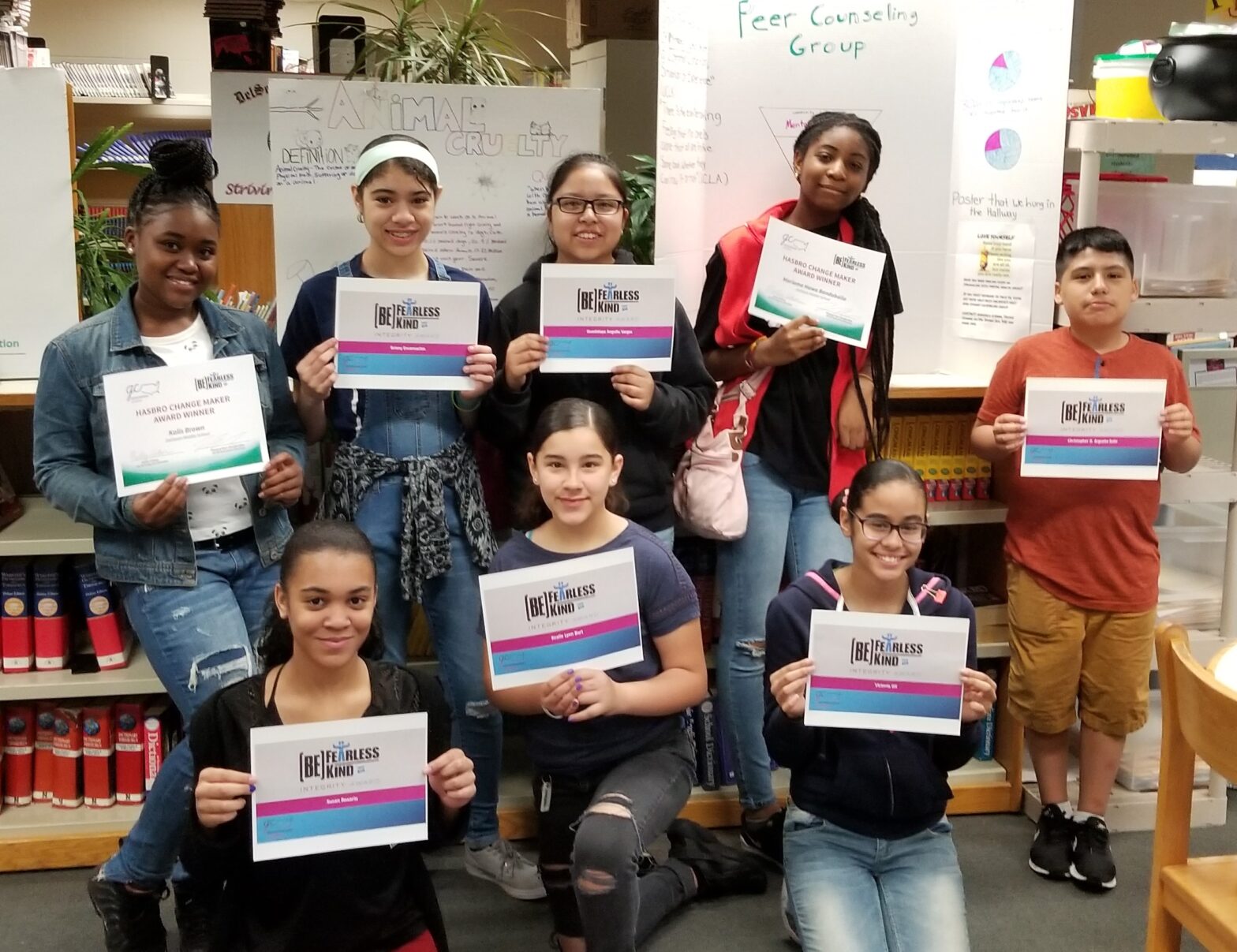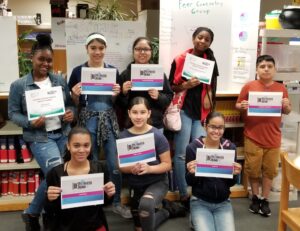This year, Generation Citizen and the Hasbro Children’s Fund collaborated to create the Hasbro Change Maker Award. Awards were given out in the form of mini-grants to fund and support student ideas on how they could make their communities a better place.
Across five schools in Providence, RI and the surrounding areas, volunteers from Hasbro gathered to listen to students pitch their Ideas and projects. These ranged from ensuring that School Zone traffic signs were installed around the building to shifting the city’s approach towards animal abuse.
Some of the projects were ambitious, like Central Falls High School winner Nancy Rodriguez who wants her elected officials to fix the crumbling schools in Rhode Island. Other students, like Mariama and Kalis from Del Sesto Middle School, want to continue work they’ve already started on suicide and mental health issues. Mariama is active in supporting students with depression and mental health concerns and will use her grant to support the club after she graduates. However, all of these ideas represented the motivation of these students to continue their local activism, to continue making a difference, and continue living and leading as Change Makers within their community.
As exemplified by the projects above, in the Generation Citizen Action Civics curriculum, students work collaboratively within a structured and supportive environment to select an issue, research and analyze the root causes behind that problem, and then implement a collective action plan with their classmates to make a difference. These skills and knowledge components are vital to being an engaged and effective citizen within a democratic government, and the Hasbro Change Maker Award was a wonderful opportunity to support youth-led change and encourage students to take their action projects even further.
Hasbro Change Maker Student Award Recipients:
Nancy Rodriguez from Central Falls High School for her project pitch on the condition of her school building. Nancy was particularly concerned about the inequality within Central Falls between the public high school and the charter high school just down the road. She was also upset that the conditions of the building blocked students from accessing the library for the first semester. She has met with heads of her school, fellow peers, and contacted her state representatives to share her concerns about this vitally important issue.
Marissa Torres from Calcutt Middle School in Central Falls for her project on recycling. Marissa was particularly concerned about recycling in her school, as she saw recycling bins were often inaccessible in classrooms or tucked away where students couldn’t easily access them. Her project designed helpful signs for all teachers to post above the bins in their classes so they could help steer students towards actually disposing of paper the correct way.
Jaidyn Long from Goff Middle School in Pawtucket for her project on school safety. Jaidyn will be meeting with the head of her school and district to share ideas on how the planned remodel of their school can take into concern the students’ worries about school safety, mainly by moving the main office to the main entrance, so visitors into the school don’t walk through the entire building before signing in.
Mariama Hawa Bandabaila and Kalis Brown from Del Sesto Middle School for their projects on suicide and mental health. Mariama and Kalis will use the support to expand the school’s small but (hopefully) growing mental health student group that Mariama helped begin. As a graduating 8th grader, Kalis will help take over the club after she leaves and continue supporting individual students who would rather talk to a peer than an adult about things they’re struggling with.
Nicole Perez-Torres from Juanita Sanchez Educational Complex for her pitch around supporting food access of peers in the school. Nicole wants to use her voice to expand the food pantry program she helps run at JSEC to neighboring schools and is particularly concerned about ensuring that students and families have access to foodstuffs that they’re familiar with, so they can cook more traditional and familiar meals for their families.

